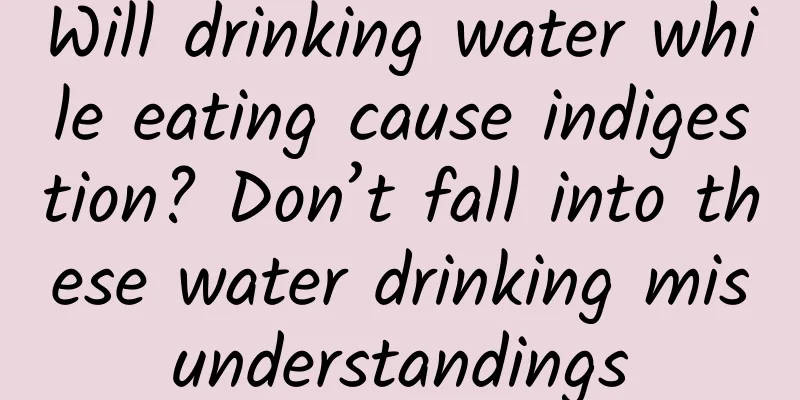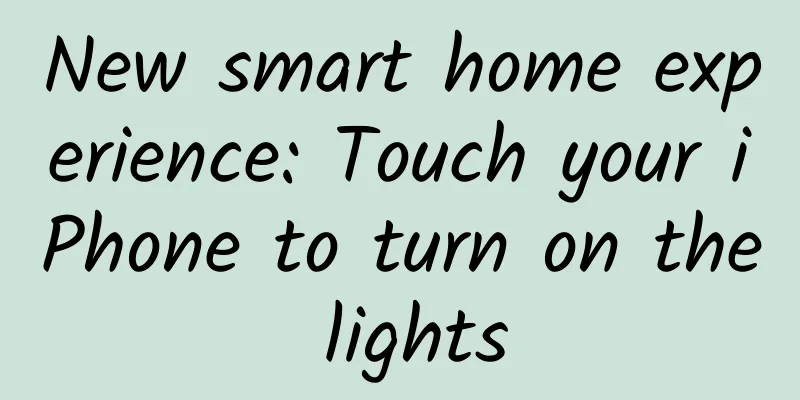Will drinking water while eating cause indigestion? Don’t fall into these water drinking misunderstandings

|
Drinking water is a very common thing, but some people always fail to do it well. Also, because it is so common, the importance of drinking water itself is easily overlooked. Some friends may wonder: Apart from breathing, drinking water is the most instinctive thing, what else do we need to learn? Two golden times to drink water Well, did you know that there is a golden time to drink water ? When the water loss is 1% of body weight, people will feel thirsty. If you forget about it when you are busy and only drink when you are thirsty, your body is actually in a state of obvious dehydration at this time. In summer, coupled with the hot weather, if the body does not replenish water in time, it may affect normal metabolism. When the loss reaches 4%-8%, we will experience symptoms such as dry skin, hoarseness, weakness, etc. If the water loss exceeds 10%, it may even be life-threatening! Drink water: It is recommended to drink small amounts frequently , about 100 ml to 150 ml each time. Although you can drink water evenly throughout the day, it is recommended that you drink water at the following two times even if you are not thirsty. 01. After getting up in the morning Drink a glass of boiled water in the morning , preferably at 25℃-40℃, which can replenish the water lost by the human body at night, effectively reduce blood viscosity, and promote blood circulation. It is conducive to the timely discharge of metabolic end products, promote gastrointestinal motility, and prevent constipation. Remember to drink water slowly in small sips. 02. Drink a small amount of water before going to bed The body's blood viscosity also has a biological clock, and blood viscosity is generally highest from midnight to 10 a.m. the next day. Drinking enough water before going to bed at night can help reduce blood viscosity, but drinking too much water should not increase the burden on the kidneys and cause frequent nighttime sleep. Common problems with drinking water Drinking water is a small matter, but drinking water is also a big matter. Especially in summer, drinking too much water in a short period of time may lead to acute water poisoning . You may have some questions about drinking water. Let's take a look. Question 1: Can drinking water really help you lose weight? I often hear friends say that they gain weight just by drinking water and that losing weight is too difficult. So, does drinking water really make you fat? In fact, drinking water correctly may actually help you lose weight. According to statistics, drinking 500 ml of water before each meal can reduce your daily intake by up to 225 kcal, which is equivalent to the calories consumed by jogging for half an hour, swimming for half an hour, or cycling for an hour. Therefore, friends who want to lose weight can try drinking water before meals to reduce hunger and see if they can eat less. Question 2: Is there any scientific basis for the rule of “drinking 8 glasses of water every day”? The saying “Drink 8 glasses of water every day” that has been circulated online originated from the slogan of a bottled water company. According to the "Dietary Guidelines for Chinese Residents (2022)", under mild climate conditions, the appropriate total water intake for adult women and men with low physical activity levels is 2700 ml and 3000 ml per day, and the appropriate daily water intake is 1500 ml and 1700 ml (about 7-8 cups); the amount obtained from food is 1300 ml and 1200 ml. It should be noted that the amount of water consumed is different for people of different ages, genders and regions. People who work in high temperatures or do heavy physical labor should increase their water intake appropriately, drink water actively, and don't wait until they are thirsty to drink water. Question 3: Is the first glass of water you drink in the morning holy water and can it detoxify? That's not true, but drinking a glass of water early in the morning can boost your metabolism. Because a lot of water will evaporate through breathing when you sleep at night, the body is in a state of dehydration when you wake up in the morning. Replenishing water in time can help the body transport nutrients and excrete metabolic waste smoothly. Question 4: Will drinking water before going to bed cause edema? Not really, but you might go to the bathroom in the middle of the night. Some people always say that you should never drink water at night, be careful of drinking too much and getting edema the next day. Experts say that drinking water before going to bed does not necessarily lead to edema. There are two main reasons for edema. On the one hand, it is because of personal physical problems. The body is prone to edema, and the metabolism is not good during sleep, or the drainage is not good, so you will wake up the next day with edema. On the other hand, if you drink water in the wrong way and drink it all at once to quench your thirst, it is easy to get edema. In fact, water is one of the most important substances for human metabolism. It is necessary to supplement 100-200 ml of water before going to bed. As long as you drink water in the right way, it will not cause edema. You can still drink water if you want to at night, but be sure to control the amount so that you don’t have to get up to go to the bathroom late at night. Question 5: Don’t drink boiled water or water that has been left overnight. Will this result in excessive nitrite? Actually, it won’t. After verification, tap water contains nitrates, and repeated boiling will indeed lead to an increase in nitrites. Experiments show that even if the water is boiled 20 times, the nitrite content does not reach 3% of the upper limit of the national drinking water standard, so there is no need to worry about excessive amounts. Therefore, boiling water thousands of times is not a big problem. Of course, the best thing is to boil as much as you want to drink. In addition, experiments have also shown that even if the water is several nights apart, the nitrite content is still far from exceeding the standard. So, theoretically speaking, there is no problem with overnight water. But if it is overnight water that has been left with the lid open for a long time, it is better not to drink it. Question 6: Will drinking water while eating cause indigestion? Actually, it won’t. Some of my friends have the habit of putting a glass of water next to their meals, but when eating at home, they are always told about drinking water while eating. The elderly will say that this will hurt the stomach, and "drinking water while eating will dilute stomach acid." Is this true? Research has found that as long as you don't drink more than 2 liters at a time, it won't have a significant effect on the composition and pH of gastric juice, and it won't affect digestion. This depends on personal habits. If you're really thirsty, it's fine to drink a sip while eating. |
>>: Is the “Sky Eye” useless? Chief scientist: Basic research has never been driven by “use”
Recommend
World Osteoporosis Day | This free method is better than calcium supplementation
October 20th is World Osteoporosis Day, and this ...
New research: This protein is the key to carrying Alzheimer's disease mutations but not developing the disease?
Alzheimer's disease (AD), as the most common ...
5 Steps to Improve Your App Store Product Description!
Like moving house or getting married, launching a...
What kind of business is talent auction?
Recently, the recruitment field is very hot, and ...
Cocos Game Development Competition sincerely invites you to fight for your dreams
Since the launch of the Cocos Game Development Co...
Who doesn't have skin? Desert "dry skin" focuses on a magical
Your browser does not support the video tag The G...
Popular Science Illustrations: Unlocking the Secrets of China's High-speed Rail Leading the World
...
If you don't know these iOS tricks after getting an iPhone, then you've wasted your money
Some friends buy an iPhone but still don’t know w...
Jie Xiaojie · Popular methods and techniques course videos on short videos
Jie Xiaojie · Popular methods and techniques cour...
Baidu's senior operations manager teaches you how to do marketing!
1. Internet Logic in the Mobile Era In the mobile...
How much does brand promotion cost? How should companies promote their brands?
Introduction: Dongguan, located in the "manu...
A picture and a paragraph to understand Alibaba's future in Jack Ma's eyes
[[151347]] Alibaba today released its first onlin...









